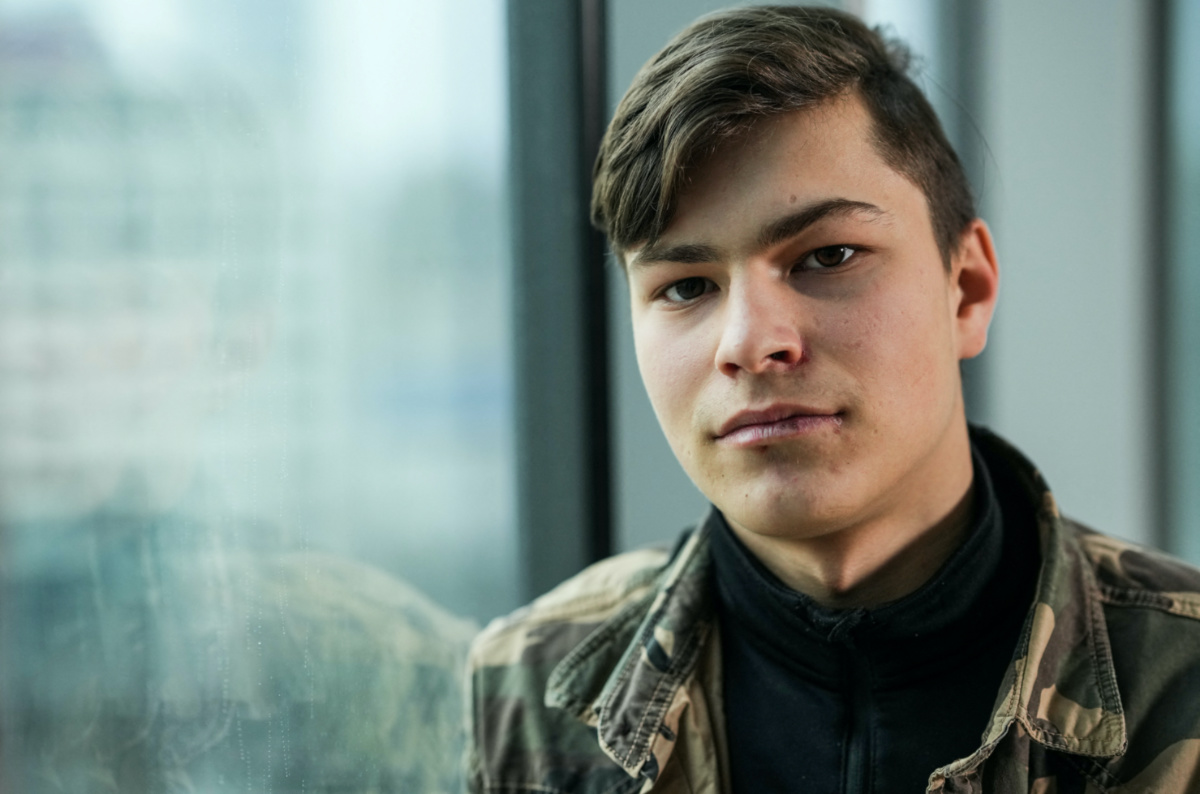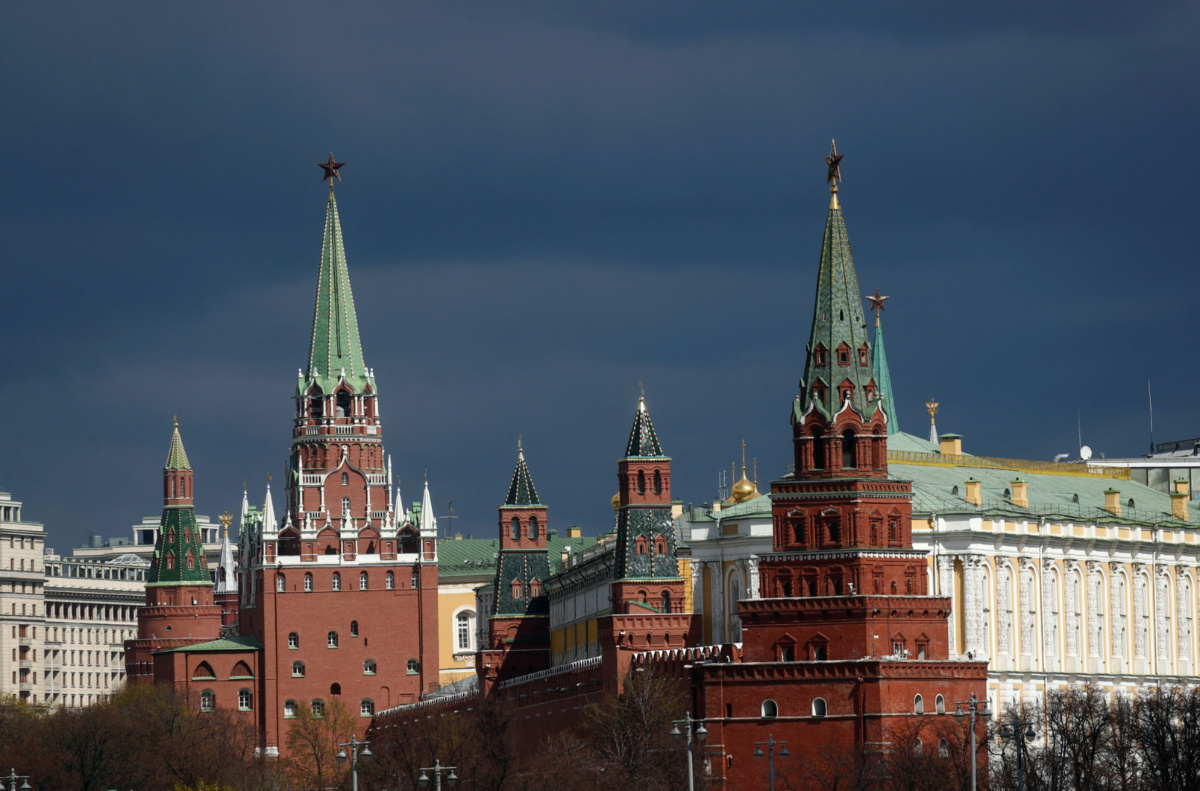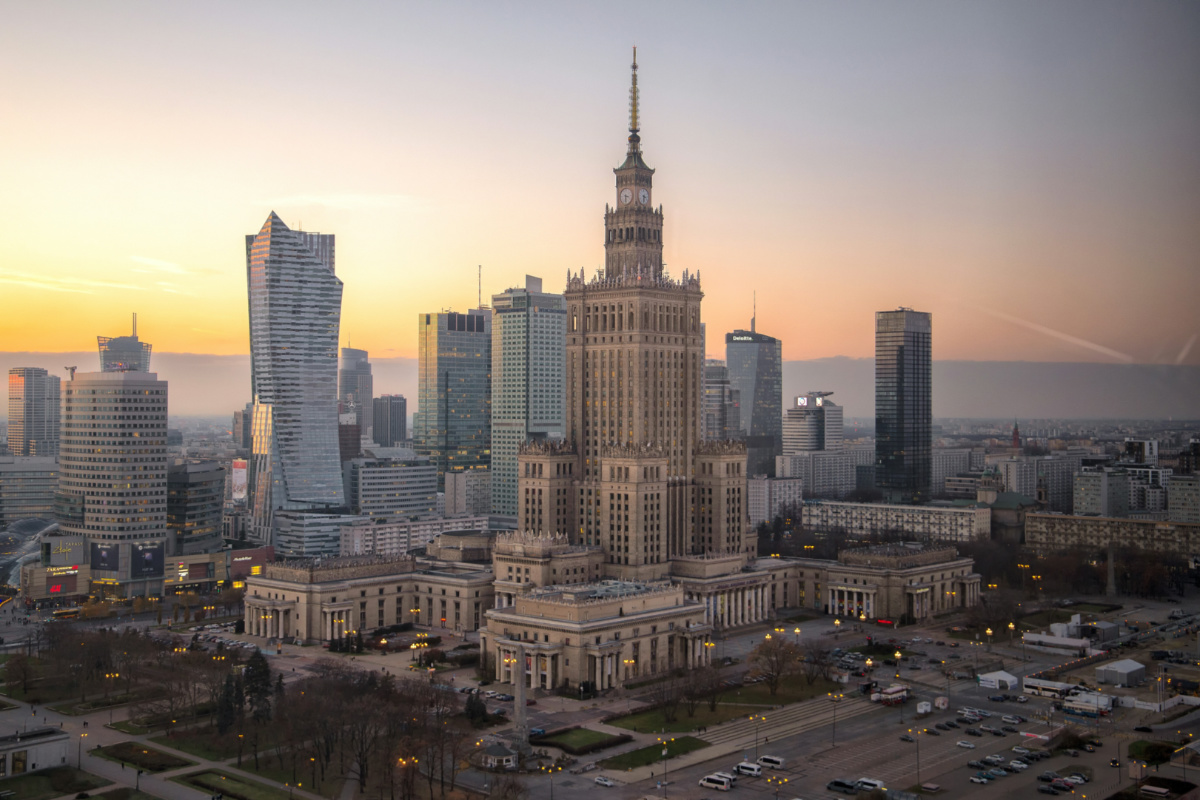
POLINA NIKOLSKAYA and MARI SAITO, of Reuters, report…
Warsaw, Poland
Reuters
A teenage orphan who became a posterchild for Moscow’s deportation of Ukrainian children to Russia said he was instructed by officials to recite pro-Russian talking points for television cameras and threatened with a beating when he complained about conditions.
Eighteen-year-old Denys Kostev is one of 4,000 orphans and children without parental care who, according to Kyiv, have been unlawfully taken to Russian-controlled territory following the invasion of Ukraine in February 2022. Russia says it has done nothing unlawful, and it only moved the children to protect them from war.

Denys Kostev, a Ukrainian teen who lived in an orphanage in southern Ukraine and ended up in Russian-controlled territory following Moscow’s full-scale invasion, poses for a portrait after an interview with Reuters in Warsaw, Poland, on 12th March, 2024. PICTURE: Reuters/Aleksandra Szmigiel/File photo
Reuters investigated the fates of Kostev and more than 50 other orphaned Ukrainians taken from the Ukrainian city of Kherson. Kostev emerged as a regular participant in a stream of pro-Russian videos filmed and shared widely online.
The teenager, who left Russia last month and is now living in Poland, said he had no plans to return to Ukraine, where some see him as a collaborator and propagandist. He told Reuters he took part in the videos because he felt intimidated and “alone”.
“When your life is threatened, you will do anything to keep yourself safe.”
– Denys Kostev
“When your life is threatened, you will do anything to keep yourself safe,” he said.
The Kremlin and Russia’s children’s rights commissioner, Maria Lvova-Belova, did not respond to requests for comment.
The International Criminal Court issued arrest warrants for Lvova-Belova and Russian President Vladimir Putin last year on war crimes charges for forcibly deporting hundreds of children from Ukraine. Russia denounced the warrants as “outrageous and unacceptable”.
Kyiv says many Ukrainian orphans taken to Russian-controlled territory have been subjected to an orchestrated program to make them accept Kremlin ideology. Moscow denies this.
Reuters was unable to verify independently Kostev’s account of being pressured by officials loyal to Moscow.
However, three teen orphans who lived with him in Russian-occupied territory have described to Reuters similar experiences of being discouraged or blocked from returning to Ukraine, and threatened with reprisals for stepping out of line.

A view shows the Kremlin in Moscow, Russia, on 20th April, 2020. PICTURE: Reuters/Maxim Shemetov/File photo
Kostev spent his childhood in foster families and children’s homes in the Kherson region after his mother was incarcerated and later died.
In the fall of 2022, when Kherson was under Russian occupation, Kostev and five other teens who lived in an orphanage there were told by local administrators they had to leave the city.
After several months in camps in Russian-controlled Crimea, the teens ended up in Henichesk, a city in Russian-occupied territory in the Kherson region. They were lodged in cold, damp dormitories in the Henichesk Vocational School No 27, Kostev said.
Shocked by the conditions, Kostev complained to a contact close to the Russian-installed authorities in Crimea. Soon after, he said, the Henichesk police showed up and castigated him for making the complaint.
“They [the police] threatened me and said: we will take you to the forest and just give you a good beating,” he said. “No-one will look for you, you’re an orphan,” Kostev said, sharing his recollection of their words.
The Moscow-installed police chief for the region did not respond to a request for comment. Olena Anikeeva, the director of the school, was unavailable, a person in her office said.
In March, 2023, around a month after his arrival in Henichesk, Kostev said he received a call from an official in the city administration who told him to meet someone outside the college.
There he found two men, who carried guns and flashed badges that said they were from Russia’s Federal Security Service (FSB). The men drove Kostev away from the college and wanted to get to know him, he said. Afterwards, the FSB men gave Kostev 500 rubles ($5.5).
In the following weeks, the men contacted Kostev to ask for information, including the possible locations of Ukrainian weapons in Kherson and the names of students at his college in touch with Ukraine’s security services. He never gave any specific details, Kostev said.
The FSB did not respond to a request for comment.
Kostev said he was also instructed by the school’s administrators to take part in video interviews. In one, filmed by Russia’s state-controlled RT TV channel and posted in February 2023, Kostev praises the Russian army and wears a Russian flag around his shoulders.
He said the TV journalists gave him a script in advance of the interview and told him to repeat it on camera.
RT did not respond to requests for comment.
Kostev’s grandmother and half-brother live in Germany. Last May, a friend of theirs, Olha Hurulia, tried to travel to Henichesk to retrieve Kostev with the help of Save Ukraine, a non-profit that helps return Ukrainian children taken to Russian-occupied territory.
Hurulia was detained in Moscow for three days and deported, according to Save Ukraine. Kostev said FSB agents showed him a video of the detained woman. Contacted by Reuters, Hurulia declined to comment on her journey to Russia.
The FSB men, Kostev said, instructed him to tell his half-brother on the phone that he had no intention of leaving Henichesk.
“They told me to tell him that I wasn’t going anywhere, that I didn’t want to,” Kostev said, adding that he complied.
Contacted by Reuters, Kostev’s grandmother, Svitlana Panchenko, confirmed his account and said he had been pressured into saying he didn’t want to leave.
We rely on our readers to fund Sight's work - become a financial supporter today!
For more information, head to our Subscriber's page.
By summer 2023, Kostev left Henichesk and moved to Russia because he felt unsafe due to the FSB’s interest in him and Ukrainian shelling of the city, he said. He had also begun a romantic relationship with a girl from Moscow, and wanted to be close to her, he added.
But by the end of the year, he had re-established contact with his half-brother and began talking about going to Germany: “I missed my family very much,” he said.
Kostev said he was also tired of “empty promises” from officials in Lvova-Belova’s office, who had offered him places at prestigious universities and other incentives but, he said, did not deliver. Reuters was unable to confirm this independently.

The skyline of Warsaw, Poland, where Denys Kostev now lives. PICTURE: Iwona Castiello d’Antonio/Unsplash
Kostev left Russia in February. Russian officials did not try to stop him on the journey. He had previously disposed of his old SIM cards in an effort, he said, to evade electronic surveillance by Russian authorities and crossed the Belarus border, where there are few controls.
When he tried to enter Germany, Kostev was refused because he did not have the correct travel documents.
He is now living in Warsaw and waiting for paperwork so he can enter Germany. Olha Yerokhina, a spokeswoman for Save Ukraine, which helped him prepare his travel documents, confirmed his account of the journey.
Poland’s border guards service and Germany’s Federal Ministry of the Interior said they do not comment on individual cases.
Yerokhina said Kostev showed the effects of pro-Russian narratives he had been exposed to and still repeated some Kremlin talking points about the war.
In his interview with Reuters, Kostev said Kyiv was prolonging the war with its rejection of peace talks, and that Ukrainian forces blew up a dam on the river Dnipro in June 2023 causing massive flooding – both points that Kyiv says are a lie.
Kostev denied he was brainwashed. He said he had arrived at his views on his own. He also expressed gratitude to kind Russians who he said had helped him.
“I’m part of both Russia and Ukraine,” he said.
Now, he wanted to stay out of politics and get on with his life, he said: “I’m just tired … I want to sit in one place and live in peace.”
– Additional reporting by ANTON ZVEREV, MARIA TSVETKOVA, and KACPER PEMPEL





